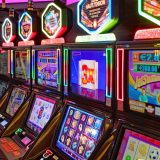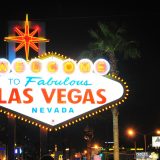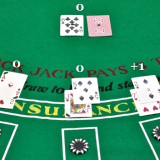 Located at the southern region of Italy, Malta Gaming Authority abbreviated as MGA is the main Authority in charge of regulating any gaming activities in this part of the Europe. The Authority was originally known as Malta Lottery Gaming Authority but it later changed its name to Malta Gaming Authority around the end of the year 2014and early 2015. Malta, an island in the Mediterranean, hosts a high number of online gaming operators.
Located at the southern region of Italy, Malta Gaming Authority abbreviated as MGA is the main Authority in charge of regulating any gaming activities in this part of the Europe. The Authority was originally known as Malta Lottery Gaming Authority but it later changed its name to Malta Gaming Authority around the end of the year 2014and early 2015. Malta, an island in the Mediterranean, hosts a high number of online gaming operators.
MGA oversees all the gaming activities and any other relevant operations in the industry in Malta with slightly over 100 companies having being licensed by the Authority. Companies that have been licensed include those that provide gaming software, online casinos and remote gaming. The Authority has a website where all players can complain about operators as well as a platform for gaming support. MGA also has a list of rights and obligations for the players listed in the Player’s charter.
Goals of the MGA
MGA has a list of goals that they work tirelessly to achieve. These goals also entail the possible advantages that both players and operators may experience once they have applied for licensing from the Authority. The goals include:
- To support the gaming industry alongside any innovation in technology that may come up
- To offer protection to the minority or vulnerable people in the gaming industry
- To ensure the rights of the players are not neglected
- To vouch for responsible gaming habits in an environment that is free of danger
- To check that any games played and all the devices used in the game are of high integrity
- To guarantee players of security- no hindrances from criminal activities
- To oversee that any functions entertaining regulatory of the gaming activities are adhered to
- To avail any data and information required
- To facilitate any licensing procedures
Roles and responsibilities of MGA
MGA’S role is defined clearly by the “Lotteries and Other Games Act” of 2001. Therefore, MGA’s role is to regulate all the sectors of the gaming industry that fall under its umbrella. MGA is supposed to do this by ensuring that the gaming process is fair and transparent to all parties. MGA is supposed to prevent any crimes, incidences of bribery or corruption and cases of money laundering. Above all, MGA is supposed to protect amateur players as well as vulnerable players. Malta Gaming Authority has over the years tried to fully cover any legal natters of the operator. MGA has done this by offering full and complete comprehensiveness of the legislation responsible for gaming. Based on this reasons, it is no wonder that MGA is one of the best regulator of gaming currently. MGA offers a highly secure as well as professional gaming environment backed by efficient technical systems. All the above features contribute to a topnotch service for any bookmaker.
What does the MGA do?
As mentioned earlier in the goals of the MGA, the Authority is involved in a myriad of activities. Some of the activities include conducting any research needed on the various angles of the gaming industry. The Authority is the key licensing body for any activities related to gaming or simply put; it issues licenses that entail gaming. Once the Authority has issued the gaming license, it has a mandate to ensure that it monitors all the activities carried out by the licensed firm or company. Another mandate for the Authority issued by the Government of Malta is that MGA should collect all the taxes under the gaming industry at predefined periods. MGA has a responsibility to support and take part in any social responsibilities that are good for the gaming industry as well as the players.
Types of Licenses issued by the MGA
There are four types of licenses issued by the MGA which we shall discuss in details below:
- Class 1- The class 1 gaming license is a remote gaming license that covers games such as online lottery, casino type as well as skilled gaming. The class is specifically for gaming operators that are responsible for games that involve risk. The companies issued with this license are those which provide games that are generated from random numbers.
- Class 2- this license is issued to operators that run risk-based games that are in line with a matchbook. It is also a remote betting license however, it is specific for fixed betting odds, pool bets and spread bets. Simply put this is a license for any form of Sports Betting.
- Class 3- this license is issued to operators receiving any form of commission by both promotions and from the betting games. The license promotes remote games in and out of Malta including networks such as Peer to Peer and poker as well as the game’s portals. The license is also referred to as P2P that is Player to Player.
- Class 4- software vendors are issued with this license. The license enables the operator to host and control remote operators for the gaming without including the issuer of the license. The technology providers for the gaming platforms are the ones who are issued with this License.
How does MGA ensure it meets its mandate?
To ensure that wishes and interests of both players and the operators in the gaming industry in Malta are met, the Authority capitalizes on certain specific areas. This is the case for any Authority that is in charge of issuing Licenses for Gaming activities. MGA has purposed to ensure that a high level of conducts and standards is maintained and in line with this, they have penned down a Code of Ethics which include:
- Honesty- the Authority tirelessly to ensure that no form of deception occurs in the gaming environment.
- Fairness- no undeserving favor or any form of interest to one’s self is displayed.
- Respect- the Authority ensures that the gaming environment is full of courtesy as well as trust while discouraging any form of negative talk that may not be pleasant to the person’s involved.
- Responsibility- any information and interest of the key stakeholders is kept safely and is not disclosed to any undeserving parties.
- Competence- knowledge and skill is one of the key mandates of all the employees of the Authority to ensure that they deliver quality service.
The Bottom-line
With a long list of advantages emerging from the Licensing by the MGA, it is a steadfast Authority in which both players and operators can put their faith in. The Code of Ethics also ensures that no side is oppressed that is both the player and the operator enjoy a slice of what the Authority has to offer. The gaming operator can choose from any of the four classes of Licenses MGA has to offer.





